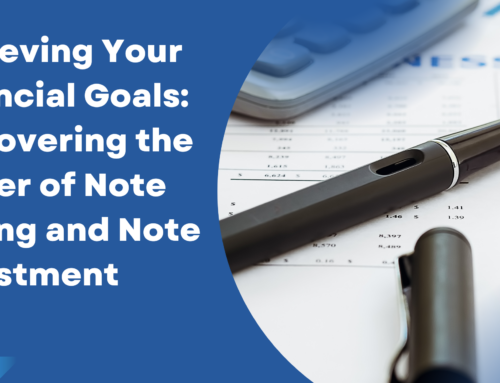Mortgage note investment, a discreet yet highly profitable facet of real estate investment, merits closer examination as we navigate the opportunities and dynamics of 2023. In this article, we delve into the diverse dimensions of mortgage notes and the prudent strategies for investing in them. How to purchase mortgage notes? A mortgage note investment represents a means of real estate ownership that doesn’t necessitate active management or landlordship, whereby homeowners make payments to investors instead of traditional financial institutions. It stands as a cost-effective avenue for gaining exposure to real estate assets.
The realm of note investing offers remarkable potential for generating passive income, but prospective investors should be well-informed about several crucial aspects. Mortgage notes, sometimes referred to as real estate lien notes or borrower’s notes, have gained prominence as an asset class in recent years. Investing in mortgage notes presents various advantages, including yields that surpass those of conventional low-yield bonds offered by banks and most stock dividends.
These notes are accessible through multiple avenues, encompassing note exchanges, note brokers, and established organizations. Both performing and non-performing notes are typically available at discounted rates, with non-performing notes often commanding steeper markdowns. This environment affords real estate investors the opportunity to realize substantial profits. For those seeking guidance, engaging a mortgage broker or investment advisor can facilitate the identification of optimal investment opportunities. However, if you possess the requisite experience, you may explore the prospect of independently sourcing and acquiring mortgage notes.
For individuals seeking insight into the process of buying mortgage notes online, we will delve into these aspects in the subsequent sections.
About Buying a Mortgage Note:
A real estate mortgage note represents a promissory note that finds its security in a mortgage loan or a Deed of Trust, contingent upon the jurisdiction in which the transaction transpires. Essentially, it embodies a commitment to repay a loan and is intrinsically linked to the collateral, typically a property. This two-part instrument comprises the promissory note, detailing the loan’s magnitude, interest rate, and terms, and the security instrument, be it a mortgage or a Deed of Trust, which imparts robustness to the repayment obligation.
In essence, the borrower must adhere to the agreed-upon payment schedule, lest the lender has the prerogative to initiate foreclosure proceedings on the property. Notably, the distinction between a mortgage and a Deed of Trust lies in the foreclosure process. A Deed of Trust entails a non-judicial foreclosure mechanism, wherein public notice precedes the property’s auction. Conversely, a mortgage necessitates a judicial process that mandates court intervention for foreclosure.
For instance, when purchasing a property valued at $150,000 with a $120,000 loan, borrowers typically execute both a promissory note and a mortgage to secure the transaction. The promissory note serves as a binding commitment to repay the debt, delineating borrower details, loan terms, and repercussions in the event of default. Concurrently, the mortgage constitutes a distinct contract securing the lender’s interest with a lien on the property or a provision for foreclosure, while specifying the responsible party, whether an individual, a couple, or an entity.
Furthermore, when considering the intricacies of purchasing mortgage notes, understanding these foundational elements becomes imperative.
Benefits of Investing in Real Estate Mortgage Notes
- High Yield Returns: Real estate mortgage notes offer the potential for significantly higher returns compared to traditional low-yield bonds from banks and most stock dividends.
- Monthly Income: Investing in mortgage notes can provide a valuable source of monthly income, making it an attractive option for retirees, individuals seeking additional living expenses, or those looking to bolster their savings.
- IRA Compatibility: These investments can be seamlessly integrated into self-directed traditional IRAs or Roth IRAs, allowing investors to leverage their retirement funds. Several reputable custodian companies can assist in handling the paperwork while securely holding IRA assets during the investment process.
- Rollover Flexibility: Investors have the option to automatically reinvest their funds, ensuring they continue to earn interest and remain poised for future investment opportunities.
How to Purchase Real Estate Mortgage Notes?
Finding individuals who have sold their properties and are looking to sell the associated mortgage notes can be challenging. To address this, many investors turn to experienced brokers who specialize in locating both private and public mortgage note deals. Online platforms, such as Associates In Real Estate Holding, offer a convenient way to discover, assess, and acquire mortgage notes, including the option to buy mortgage notes online. For those interested in nonperforming mortgages, investing in real estate notes remains a cost-effective means of acquiring such properties. Associates in Real Estate Holdings offers professional real estate investment and advisory services, providing clients with strategic insights and opportunities. With a focus on maximizing returns and minimizing risks, Associates in Real Estate Holdings is your trusted partner in real estate investment success. Explore profitable opportunities today.



Leave A Comment